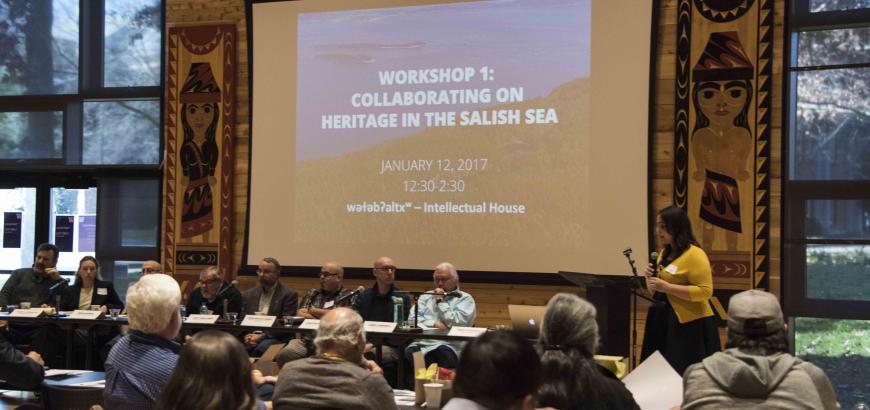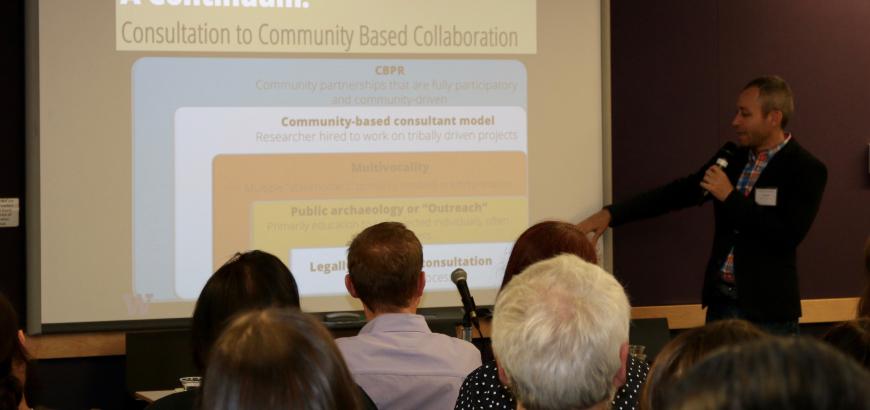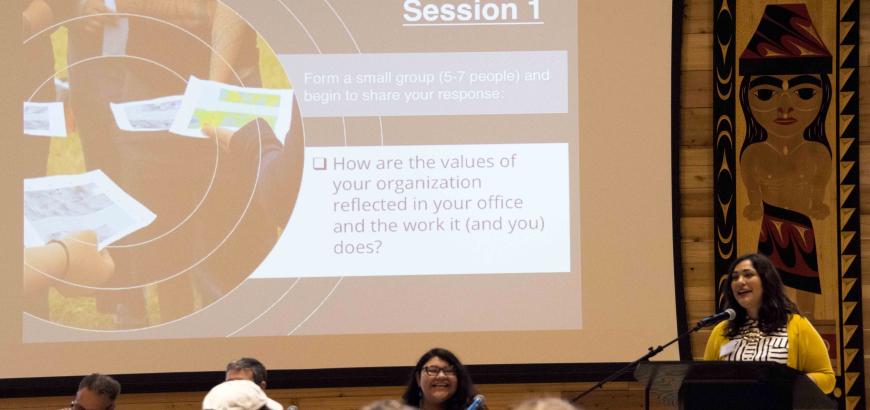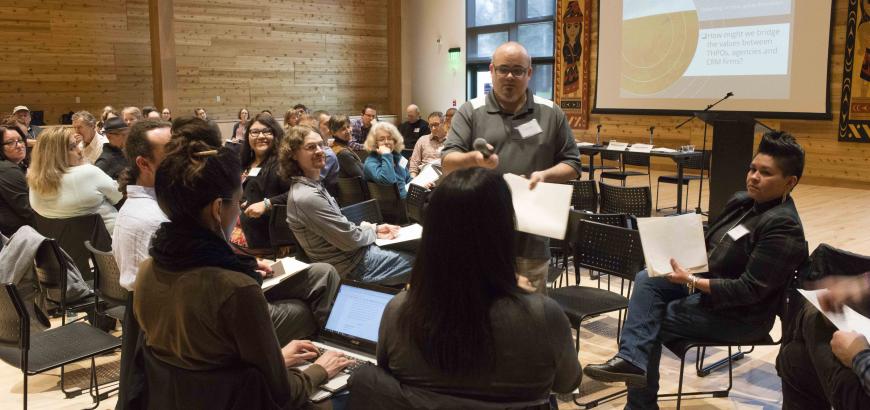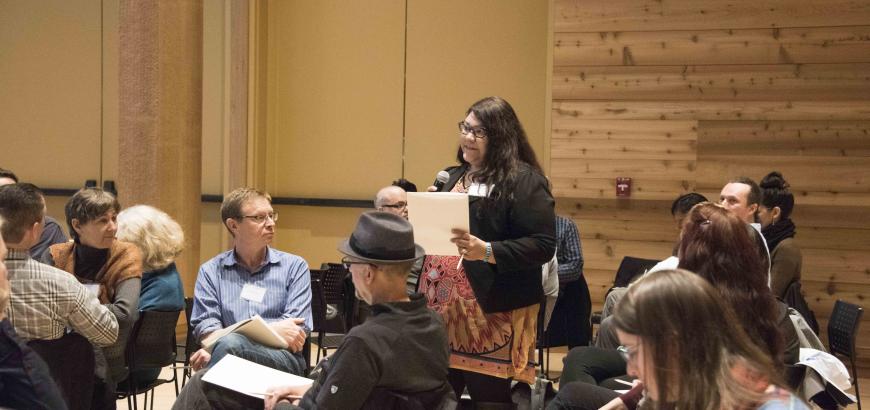We are excited to report the successful completion of a four-part seminar and workshop series, “Preserving the Past Together.” The series explored indigenous and community-based archaeology’s contribution to caring for and protecting cultural heritage interests in the Pacific Northwest’s Salish Sea. Participants included tribal representatives, heritage resource managers, educators, and archaeologists employed by universities, area tribes, CRM firms, local, federal, and state agencies. Assistant Professor Sara Gonzalez and graduate student Yoli Ngandali coordinated the effort with the help of colleagues Sven Haakanson, Peter Lape, Alison Wylie, and Ben Fitzhugh.
The first three workshops, held on the University of Washington campus at wǝɫǝbʔaltxʷ‑Intellectual House early in 2017, addressed central themes in collaborative archeology today: tribal-centered cultural heritage management; opportunities and challenges of caring for heritage; collaboration between tribal nations and heritage managers; and what it means for tribal heritage management to be rooted in indigenous cultural values. The last workshop, held at the Suquamish Tribe’s House of Awakened Culture (in association with the 10th Annual Cultural Resources Protection Summit), focused on developing a collectively authored tool-kit to provide heritage managers with guidelines for effective collaboration with tribes in the Salish Sea region.
Invited workshop speakers included Leonard Forsman (Suquamish Tribal Chairman and Vice-Chair, Advisory Council on Historic Preservation), Dr. Chip Colwell (Denver Museum of Nature and Science), Dr. Ora Marek-Martinez (Navajo Nation, Northern Arizona University), and panels of representatives from the Suquamish Tribe, Swinomish Indian Community, Snoqualmie Indian Tribe, Confederated Tribes of Grande Ronde Community of Oregon, Confederated Tribes of the Colville, Stó:lõ Research and Resource Management Centre, WSDOT, DAHP, Simon Fraser University, University of British Columbia, and UW Law. The February and March sessions were capped with well attended public lectures. Chip Colwell addressed the Native American Graves Protection and Repatriation Act (“Let Us Rebury Our Dead: Native America’s Necessary and Imperfect Law”) and Ora Marek-Martinez presented on navigating cultural sensitivities and an archaeological career (“Archaeology?! Yadilah! Collaborative Archaeology and Lessons from the Navajo Nation.”)
We look forward to building on these sessions to improve understanding and working relationships with tribal nations, agencies, and heritage professionals in the Pacific Northwest. One of our immediate goals will be to complete a draft of the best practices tool-kit. Support for the series was provided by the UW College of Arts and Sciences, Office of Research, the Burke Museum, Department of Anthropology, Intellectual House Academic Planning Committee, the Suquamish Tribe, and the Quaternary Research Center. We are thankful for the generous participation and sharing of insights brought to the sessions by the many members of tribes, agencies, and academic institutions who gave their time to come together in these activities.

